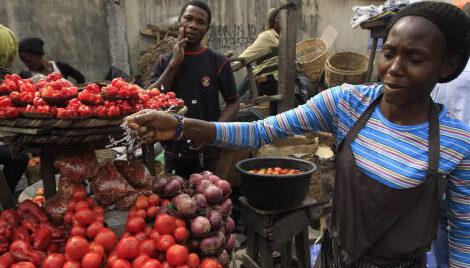Africa-Press – Lesotho. The capacity to recover quickly from any challenge is often determined by how well we have planned for that challenge. In the world we live in, our gender greatly determines our preparedness for the different obstacles life throws at us.
It is no secret that across the board, women are at a socioeconomic disadvantage compared to men; accordingly, the coronavirus pandemic is exposing and magnifying the extent of this inequality.
As concerns for jobs, livelihoods and the state of the economy are being debated, it is crucial that we take a gendered approach to highlight the impact of the current global pandemic on women and other vulnerable populations.
For women, the repercussions of COVID-19 are being felt more deeply with a potential to extend far longer than for their male counterparts. While gender inequality is a global issue, in Africa the reality is scathing. African women have several obstacles impeding them from realising their full autonomy, dignity and protection.
In Sub-Saharan Africa, women make up to 60% of the workforce yet, they receive 10% of the income and own only about 1% of land assets.
These statistics are not different in Nigeria, where women make up about 50% of the labour force and are mostly the poorest members of our society. Within the COVID-19 crisis, many of these women are surviving with difficulty and will also struggle to recover.
This is due to the existing inequalities within the system at all levels and across all spheres as compounded by the lack of an adequate or efficient safety-net against the expected health and economic shocks.
The coronavirus pandemic is a health crisis, but it has also generated an economic crisis that is fuelling an imminent recession. Traditionally, men have faced the brunt of recessions because they generally work in the sectors often hit hardest by recessions.
However, this COVID-induced recession is different. For example, widespread lockdowns have led to a reduced demand in the service industry, an industry typically dominated by women. In developing countries like Nigeria, reproductive health has gone to the bottom of the list of pandemic priorities.
The International Labour Organization (ILO) estimates indicate that in the next three months, nearly 200 million jobs will be lost and service jobs; hairdressers, nail technicians and other positions in the hospitality industry will make up most of those jobs.
For women in these fields, layoffs will mean a loss of major streams of income further contributing to cycles of poverty. In Nigeria, where women account for a larger share of market traders, the impact of lockdowns, social distancing measures and other restrictions have and will continue to severely impact women’s livelihoods.
Even where women own their own small and micro businesses, the data is not encouraging. Despite an ILO estimate stating that over 80% of Nigerian women are self-employed, they typically run informal businesses making them more vulnerable to economic shocks.
However, the impact on women does not stop there; with a health crisis comes the need for care, and due to prevalent socio-cultural norms, women are often tasked with this responsibility.
If a member of the family falls ill, it is usually the woman who takes the lead in care. With schools shut and children at home, women are also more likely to bear a greater proportion of the burden of childcare.
That means their ability to increase their earning potential – should an opportunity arise – is limited because of the competing requests for their time from unpaid home and childcare responsibilities.
Beyond economic factors, there are other health and social issues that women are dealing with almost exclusively. Restrictions in movement have further restricted the already limited access to contraception and medical assistance as it relates to other reproductive health concerns.
In developing countries like Nigeria, reproductive health has gone to the bottom of the list of pandemic priorities. The lack of access to reproductive healthcare could potentially put millions more women and girls at risk of losing the ability to plan their families and protect both their bodies and health.
These COVID-19-induced disruptions are likely to erase much of the strides taken towards gender equality in Nigeria and beyond. The 2014 West Africa Ebola pandemic is a contextually accessible example of what this looks like in an African context.
In some villages in Sierra Leone, school enrollment rates for teenage girls fell from 50 to 34 percent after the Ebola epidemic, with lifelong implications for their well-being and that of their communities and societies.
Yet another negative impact of this pandemic on women is that as a result of lockdowns, isolation and restricted movement, many women are trapped in homes with abusive spouses and family members.
Data suggests that Gender Based Violence (GBV) has increased by threefold in the last two months alone.
Women also have disproportionately less access to financial services in general; and credit in particular, which can help offer a safety net and insulate businesses from the worst effects of the pandemic.
Over 105 countries have passed fiscal response packages to mitigate the effects of the coronavirus pandemic. However, without these interventions incorporating sex-disaggregated data, a gender lens and specific targeting of women; women will not reap the intended benefits of these packages.
No one feels the effects of being excluded from fiscal response packages as well as the opportunity to participate in the broader economy than women like Lady B, as her customers fondly refer to her.
A 6:00 am text to me spoke of her despair at not being able to feed her four children. “Any amount of money you can send me, please,” she implored. The status quo is not sustainable; we cannot thrive if half of the population is not given the tools it needs to survive.
Before the pandemic, Bose (Lady B) was running a successful street-corner mama put (local restaurant), selling local delicacies to passers-by on one of the busiest streets in Lagos, employing two staff to help serve the increasing number of customers.
But come lockdown, and the restrictions and curfew that followed, her steady flow of customers was dropped to a dismal trickle. Her costs increased beyond what was profitable.
“I am so sorry to disturb you,” she added in her text. Bose is not unique; there are many women like her whose businesses have been so adversely affected that they can no longer afford to keep them open. Many are also struggling to put food on the table for their loved ones.
Working in partnership with other organisations, WRAPA is coordinating a qualitative evaluation of the economic impact of COVID-19 on female-led businesses.
The aim is to support their recovery using best recovery strategies to revamp old businesses and grow new ones. Gender inclusivity in the design and implementation of interventions, policies, solutions and services will result in a more impactful outcome – especially as it relates to women.
One productive way to empower women is to provide them with access to necessary, cost-effective financial products and services including and especially access to credit and meso-financing, alongside the capacity building required to empower them to continue operating their businesses, many of which have been decimated as a result of COVID-19. For women, who are less likely than men to access loans, these packages supply their businesses with much-needed liquidity.
For instance, in Ethiopia, the Women Entrepreneurship Development Project (WEDP) issued $23.3m to women entrepreneurs in its first calendar year, with 66% of recipients being first-time borrowers.
Three years later, participants had increased their profits by an average of 40%. Bottom line: Women need autonomy. And more often than not, at the heart of this autonomy is financial independence.
We need to tilt the balance and support and empower women who are being negatively affected on all sides and with no safety nets. The status quo is not sustainable; we cannot thrive if half of the population is not given the tools it needs to survive.
For More News And Analysis About Lesotho Follow Africa-Press






